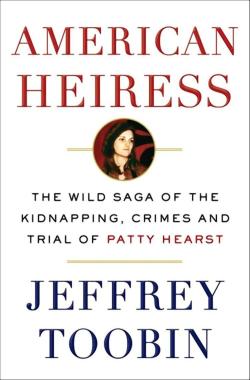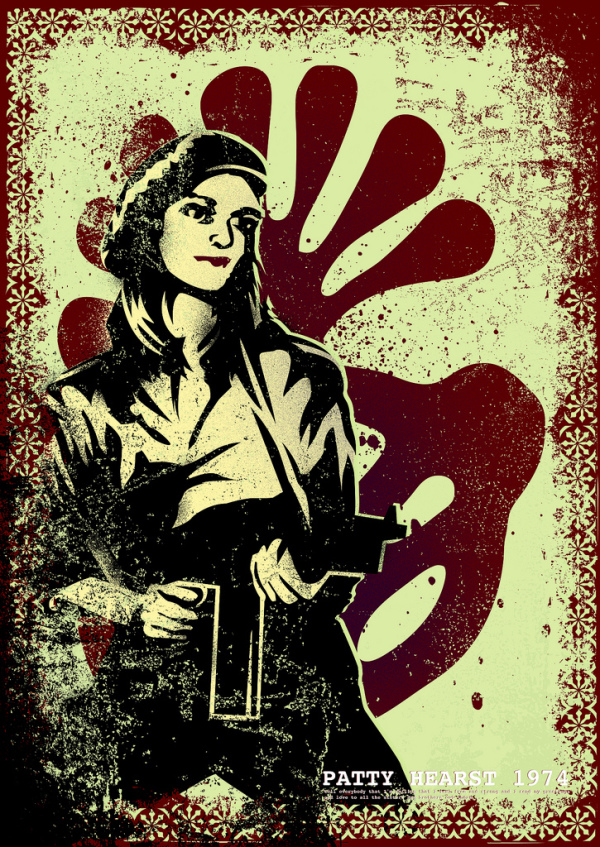FRESH AIR: In February of 1974, Patty Hearst, the 19-year-old granddaughter of the wealthy newspaper publisher William Randolph Hearst, was kidnapped by the Symbionese Liberation Army, a small, armed revolutionary group with an incoherent ideology and unclear goals. Two months after her abduction, questions concerning Hearst’s ties to her abductors arose after Hearst declared her allegiance to the SLA, denounced her family and was seen carrying an automatic weapon during an SLA bank robbery. Newspapers published a photograph of the heiress carrying a weapon and posing in front of the SLA flag. “You look at this photograph and you have to wonder: Whose side is she on?” author Jeffrey Toobin tells Fresh Air‘s Terry Gross. “The mystery of that photograph is really what the mystery of this book is about.” Toobin’s book, American Heiress, revisits the famous kidnapping and the ongoing question of Hearst’s motivations and loyalty in the 19 months that followed her abduction. “If you look at her actions … over the following year, you see the actions of a revolutionary, not a victim,” Toobin says. “There was some glamour to what she was doing, the swagger of wearing berets, of carrying machine guns — the romance of revolution was an undeniable part of the appeal of the SLA.” Hearst was eventually captured by the FBI, convicted of bank robbery and sentenced to 7 years in federal prison. She served 22 months before President Jimmy Carter commuted her sentence. Later, President Bill Clinton pardoned her. Toobin calls the presidential actions on Hearst’s behalf an example of “wealth and privilege in action. … The fact that she got these two presidential gestures of forgiveness is the purest example of privilege on display that frankly I have ever seen in the criminal justice system,” Toobin says. MORE
“You look at this photograph and you have to wonder: Whose side is she on?” author Jeffrey Toobin tells Fresh Air‘s Terry Gross. “The mystery of that photograph is really what the mystery of this book is about.” Toobin’s book, American Heiress, revisits the famous kidnapping and the ongoing question of Hearst’s motivations and loyalty in the 19 months that followed her abduction. “If you look at her actions … over the following year, you see the actions of a revolutionary, not a victim,” Toobin says. “There was some glamour to what she was doing, the swagger of wearing berets, of carrying machine guns — the romance of revolution was an undeniable part of the appeal of the SLA.” Hearst was eventually captured by the FBI, convicted of bank robbery and sentenced to 7 years in federal prison. She served 22 months before President Jimmy Carter commuted her sentence. Later, President Bill Clinton pardoned her. Toobin calls the presidential actions on Hearst’s behalf an example of “wealth and privilege in action. … The fact that she got these two presidential gestures of forgiveness is the purest example of privilege on display that frankly I have ever seen in the criminal justice system,” Toobin says. MORE

